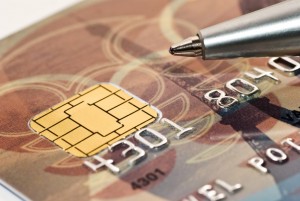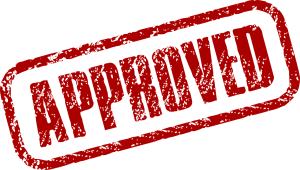Quickbooks Now Offers TouchSuite Payment Processing
 TouchSuite, maker of point-of-sale systems and merchant services, now offers payment processing that’s integrated directly into Quickbooks. The Boca Raton-based company announced the news earlier this month, saying it’s one of the five payment processing services integrated into Intuit’s highly popular accounting software. So if you’re looking for a new solution to accept payments from customers and clients, you should check out TouchSuite.
TouchSuite, maker of point-of-sale systems and merchant services, now offers payment processing that’s integrated directly into Quickbooks. The Boca Raton-based company announced the news earlier this month, saying it’s one of the five payment processing services integrated into Intuit’s highly popular accounting software. So if you’re looking for a new solution to accept payments from customers and clients, you should check out TouchSuite.
TouchSuite’s auto-sync payment interface, known as Lightning Payments, operates within Quickbook’s point-of-sale and accounting interface, streamlining the process of accepting payments. While other payment processing solutions require business owners to utilize multiple programs and tools, Lighting Payments eliminates these unnecessary steps by placing everything within the convenient, easy-to-use Quickbooks accounting portal. This means you can spend more time building your business and less time micromanaging accounting tasks.
According to a press release issued by TouchSuite, the company’s Lighting Payments introduces a wide range of helpful new features for small business owners, such as mobile point-of-sale access (use your smartphone or tablet to accept transactions), e-commerce solutions, gift card transactions, IPLINK — application that allows Quickbook users to sync their account with the payment processing system — enhanced security via encryption, virtual terminal application and more.
“Anticipating and creating affordable solutions around the needs of small to medium size businesses is the objective behind everything we do,,” said TouchSuite CEO Sam Zietz. “With one seamless system, our clients can now synchronize their entire financial and accounting process without the forced hand of high processing rates.”
Regardless of your business’s industry/niche, chances are it will benefit from the use of TouchSuite’s merchant services. We all know the importance of being able to accept payments from customers and clients anytime, anywhere. With TouchSuite’s Lighting Payments, business owners can use their smartphone to accept payments. Of course, the real benefit of the TouchSuie’s POS systems is its integration with Quickbooks. Users can sync Lighting Payments to automatically update their Quickbooks account. So when you make a sale, your account reflects it almost instantaneously.
What do you think of this partnership? Let us know in the comments section below!
Debit Card Transaction Fees For Small Businesses
 If a small business or retailer wants to have the ability to offer credit and debit cards as a form of payment to their customers, they must pay the corresponding bank a certain amount for each transaction. This transaction fee is set by the bank and is sometimes more than the retailer is willing to pay. If you’ve ever been a store that didn’t offer a specific credit or debit card, it’s because the transaction fees were too high for them.
If a small business or retailer wants to have the ability to offer credit and debit cards as a form of payment to their customers, they must pay the corresponding bank a certain amount for each transaction. This transaction fee is set by the bank and is sometimes more than the retailer is willing to pay. If you’ve ever been a store that didn’t offer a specific credit or debit card, it’s because the transaction fees were too high for them.
There’s really not too much of a difference between using a debit or credit card at a retailer. Once you swipe your card, it will go through whatever baking system it’s associated with, such as Visa, Discover or AMEX. Both debit and credit cards use these banking systems to handle transactions and each of them have different transaction fees.
So how much is the average debit card transaction fee? A couple of years ago, banks were charging as much as 2% for each transaction. This may not seem like a lot, but that 2% adds up on each and every purchase. If a retailer were to generate $100,000 in debit cards, that’s $2,000 in fees alone. Some of the larger retailers may go well into multi-million dollar revenue, which would incur a significantly greater amount of fees.
Most of us aren’t store owners or retails so these transaction fees aren’t going to directly affect us. With that said, banks are now shifting their focus to start charging their customers to use their debit cards as well. Thankfully, this isn’t a transaction fee yet, but rather a monthly fee tacked on to the customers account. This is a fairly new occurrence that many banks are trying out for the first time.
Even if your bank doesn’t charge their customers for using their debit cards, you should still keep en eye out for any new information they send you in the mail. In the event they decide to start charging their customers, they should send you information about the bank debit card fee, so be sure to read any new mail they send out.
If you aren’t happy with any new debit card fees charged by your bank, be sure to voice your concerns to them. Banks are still testing out these fees to determine whether or not they’re a smart business move. While the fees are minimal, it’s still money that’s being taken out of the customers pocket.
Will I Get Approved For a Credit Card?
 Many people with either no credit or a poor credit history ask themselves “Will I get a credit card?”. Banks and card issuers use a lot of factors to determines ones eligibility, such as payment history, credit score and income. If you don’t have any credit, or if you have poor credit, you’ll certainly have a tougher road ahead of you, but you can successfully get a credit card if you know the right steps to take.
Many people with either no credit or a poor credit history ask themselves “Will I get a credit card?”. Banks and card issuers use a lot of factors to determines ones eligibility, such as payment history, credit score and income. If you don’t have any credit, or if you have poor credit, you’ll certainly have a tougher road ahead of you, but you can successfully get a credit card if you know the right steps to take.
A decade ago, credit cards were given out more frequently than they are today. However, with the downwards trend of the job and house market, as well as other financial sectors, the card companies have become a bit more strict on who they issue credit cards to. Now, they take many factors into consideration before handing over that dangerous piece of plastic.
One of the most important factors in determining ones eligibility to receive a credit card is his or her FICO credit score. This number, ranging from 350 to around 850, is your average score based on the three major credit reporting bureaus – Trans Union, Equifax and Experian. While these bureaus are based in the U.S., their scores are still frequently used in other countries as well.
If you’re a U.S. resident, you can get a free credit report once a year from annualcreditreport.com. Here, you enter in your name, address and social security number and it will pull a report from each of the three major bureaus. While many companies offer so-called “free credit reports”, you have to use caution with them, as most of them require you to subscribe with a payment plan before receiving your report.
Card issuers use more than just ones credit score to determine if they’ll give you a credit card. Another factor is your debt to income ratio. Ideally, they want to see that you have a substantially higher amount of income than you do debt. When they see an individual with a large amount of debt and little income, it puts them in a high risk category, which means they probably wont be issued a card.
We all know that paying your bills on time is important to avoid late fees, but it also helps with your credit history. Card issuers will look at your past payment history on both open and closed accounts to see how punctual you are with your payments. If you’ve been paying your bills on time, it’s a good sign you’ll continue to do so with a credit card. On the other hand, if you’ve been consistently late paying your bills, then the company may not want to issue you a card.
Having a credit card is sign of your financial freedom. Once you have one in your possession, you no longer have to carry around a wad of cash in your wallet. Although, you need to be responsible once you have one, as it’s easily to allow your debt to go out of control. For this reason, you should only use your card when you have the money to immediately pay it off.
5 Reasons To Choose Hosted Quickbooks For Your Accounting Needs
 Can’t seem to choose between Quickbooks Online and Hosted Quickbooks? It’s a common assumption that these two services are the same. While they share some similarities, however, Hosted Quickbooks offers several benefits that aren’t found in Quickbooks Online. To learn more about Hosted Quickbooks and why you should choose it, keep reading.
Can’t seem to choose between Quickbooks Online and Hosted Quickbooks? It’s a common assumption that these two services are the same. While they share some similarities, however, Hosted Quickbooks offers several benefits that aren’t found in Quickbooks Online. To learn more about Hosted Quickbooks and why you should choose it, keep reading.
#1) Access Quickbooks Anytime, Anywhere
Hosted Quickbooks is stored on the cloud, meaning you can access your account from anywhere in the world, at anytime you choose — assuming you have an active Internet connection. This alone makes Hosted Quickbooks worth the investment, but there are several other benefits worth noting.
#2) Use Existing Quickbooks Licenses
Unlike Quickbooks Online, Hosted Quickbooks allows customers and clients to use their existing desktop-version Quickbooks licenses. The license is simply transferred to the company or third-party vendor offering the hosting services. Once activated, clients can continue using their Quickbooks without the need for a second license.
#3) Automatic Backups
There’s nothing more frustrating than spending countless hours performing accounting work in Quickbooks only for your hard drive to crash, resulting in a loss of data. This type of nightmare scenario can be avoided by using Hosted Quickbooks. The hosted version of Intuit’s Quickbooks software comes with automatic backups, so you don’t have to worry about hardware malfunction, system crashes, viruses, etc. In the event that you lose your data, you can rest assured knowing it’s backed up on the cloud.
#4) Faster Updates
You might be surprised to learn that authorized hosts are the first to receive new Quickbooks updates. Intuit gives authorized hosts first class treatment, allowing them to deliver new versions of the software to their customers and clients. Why is this important? Well, these updates may improve performance, fix bugs and vulnerabilities, add new features, and create a better all-around environment for users.
#5) Easier To Set Up and Use
Hosted Quickbooks is easier to set up and use than traditional desktop versions of Quickbooks. When a user purchases a desktop version of Quickbooks, he or she must manual install it on their own computer. This takes time, patience and some basic understanding of the software. Hosted Quickbooks, on the other hand, is done completely by the respective hosting company or vendor. They’ll take care of the leg work associated with installing and setting up Quickbooks, eliminating the need for manual installations.
Dealing With Credit Card Debt
 Is your credit card debt slowly spiraling out of control? With mounting fees and compounding interest, it’s easy to feel like there’s no way out of this troublesome and stressful situation. Thankfully, though, credit card help is available to those who are drowning in a sea of ever-lasting debt.
Is your credit card debt slowly spiraling out of control? With mounting fees and compounding interest, it’s easy to feel like there’s no way out of this troublesome and stressful situation. Thankfully, though, credit card help is available to those who are drowning in a sea of ever-lasting debt.
Credit card debt is an ever-growing problem here in the United States. According to recent study, it’s believed card holders in the United States alone owe around 600 billion dollars in debt. This number is simply staggering, especially when you look at the nation with the second highest credit card debt, the United Kingdom. Their debt is only estimated to be around 70 billion pounds.
It’s easy to feel overwhelmed when looking your debt. After all, no one wants a reminder of how badly they are in debt. However, credit card help can get you back on the right track to financial freedom, and the first step in doing so is to take a look at your debt. Get out all of your credit card statements from the past year and analyze how much debt you have, what you’re paying on it, and how long it will take to pay off if you continue to pay at your current rate.
One of the key components to receiving credit card help is budgeting. This means cutting out all of those unnecessary expenses like going out to eat, drinking at bars, sports and concert tickets, etc. While you might be able to budget in your head, you should write it all down in front of you so you can see the numbers first hand. Determine how much you approximately spend per month and start cutting out things that aren’t essential. Depending on your lifestyle and income, budgeting could save you 60% or more per month, and that’s money that could go towards paying off a credit card.
You have to be smart when paying off your credit cards. Avoid those nasty $40 late fees by paying on time and always focus on paying off your card with the highest interest first. If you have several credit cards, make the minimum payments on all but one, the highest interest card. For this card, pay as much as you can per month using any extra income you have.
If budgeting still isn’t getting you any closer to paying off your debt, you may want to consider counseling for credit card help. There are several not-for-profit organizations which help consumers reduce and eliminate their credit card debt. They will sit down with you and discuss your debt situation, income and spending habits. If all else fails, they may suggest filing for bankruptcy. Although, bankruptcy should only be considered as a last resort.
You don’t have to live your life in a sea of credit card debt. Through smart spending, budgeting and focusing on one card at a time, you’ll be on your way to having them paid off. While it may seem like there isn’t an end in sight, once you start making progress on your cards your debt will slowly drop and the light at the end of the tunnel will show itself.
Intuit Acquires Payroll Service Acrede
 Intuit, maker of the world’s most popular and widely used business accounting software Quickbooks, recently purchased the UK-based payroll service company Acrede.
Intuit, maker of the world’s most popular and widely used business accounting software Quickbooks, recently purchased the UK-based payroll service company Acrede.
According to an article published by TechCrunch, the deal was announced in a brief magazine feature written by the CEO of Acrede. We still don’t know the financial details of the deal, but it’s safe to assume that Intuit paid a pretty penny for the company. Acrede offers cloud-based payroll services to companies and businesses of all shapes and sizes, streamlining the process of paying employees.
TechCrunch notes that Intuit actually developed its on web-based payroll service before purchasing Acrede. You might be wondering why exactly Intuit would express interest in Acrede if it already has its own web-based payroll service. Well, Acrede’s service is established throughout Europe and Asia — something that’s not found in Intuit’s new service. These markets are growing by leaps and bounds with each passing year, and it’s important for Intuit to deliver quality services to customers here.
“Acrede’s cloud-based global platform processes payroll for employees in 30 countries with scalable technology and a talented team with deep global tax and compliance expertise,” Karen Peacock, GM of employee management solutions in Intuit’s Small Business Group, said in a written statement. “We’re excited to welcome them to the Intuit team.”
There are literally dozens of different payroll services already available, so what sets Acrede apart from the rest? For starters, it’s a strictly cloud-based service, meaning it will likely deliver greater performance, efficiency and cross-compatibility when compared to others. We talk about the benefits of cloud computing in greater detail here, but it’s worth mentioning again that cloud services are optimized for efficiency and performance. Cloud-based payroll services, such as those offered by Acrede, are sure to attract businesses and companies looking for an effective payroll solution.
Unfortunately, there’s no word yet on when exactly Intuit will implement Acrede into its normal business operations. It could be next week, or it could be next year (which isn’t that far off, BTW). Regardless, you can check back with our blog here MyVao.com for all of the latest news surrounding Intuit, Quickbooks, and other business accounting topics.
Do you think this acquisition was a smart move for Intuit? Let us know in the comments section below!
Investing 101: A Simple Approach To Investing
 Instead of allowing your money to sit in a checking or savings account with little to no interest rate, you should consider some more lucrative alternatives. Sure, your money is almost guaranteed to be the safest while in a government-insured checking account, but you’re essentially leaving some passive forms of revenue on the table by doing so.
Instead of allowing your money to sit in a checking or savings account with little to no interest rate, you should consider some more lucrative alternatives. Sure, your money is almost guaranteed to be the safest while in a government-insured checking account, but you’re essentially leaving some passive forms of revenue on the table by doing so.
Before we go into methods of investing, you first must understand and follow the basic principles of saving. For starters, you have to save more money than what you’re spending. If you’re buying too many luxury items and unnecessary expenses, chances are you’re not going to have any extra money to save. Work on budgeting your finances first and then you can start thinking about how to invest your money.
When your debt is up to date and there’s money in your savings account, it’s time to start looking for smarter investing alternatives. Unless you have experience trading stocks or commodities, I recommend staying away from these sectors as there’s a potential to lose all of your investment. Remember the golden rule of investing, though – greater risk means the potential for higher profits.
One of the safest types of investment is a government bond. These are bonds issued and backed by the federal government which promise the holder a specified amount of money and interest when cashed in on a certain date. Typically, the individual holds on to to a government bond for a given period of time (5, 10, 30+ years) before they’re able to cash it in.
If you’re willing to try an investment alternative with a slightly higher risk, you should consider placing your money into a mutual fund. Basically, these are stock purchases which are made and managed by reputable financial investors. The primary advantage of a mutual fund is the fact that your money is spread across a variety of stocks, which reduces your overall risk. When choosing a mutual fund to invest in, look at its history to see how it performed in the past. Obviously, you want to invest your money in one with a positive return and not many high or low spikes.
No matter what route you decide to take with your investment, you have to treat it as a long-term financial solution. It’s all too common for individuals to pull their money out of bonds, stocks, mutual funds or some other form of investment at the first sign of trouble. Keep an eye on your investments and watch for signs new trend shifts and patterns.
When in doubt, speak with a financial adviser to see what investment options he or she recommends. Bonds and mutual funds are two of the safest forms of investment which can still provide a nice return on your initial investment. However, there is big money to be made in trading stocks and commodities if you’re willing to do the leg work and take the risk. Only an experienced financial adviser can tell you what the risk option is for investing your money.
How To Set Up a Budgeting Plan
 For most individuals, saving money is a task that’s easier said than done. Although, there is hope on the horizon for building income in your savings account. It’s not always easy and it certainly wont happen overnight, but following a few basic financial principles will put you on the right path to building a comfortable nest egg.
For most individuals, saving money is a task that’s easier said than done. Although, there is hope on the horizon for building income in your savings account. It’s not always easy and it certainly wont happen overnight, but following a few basic financial principles will put you on the right path to building a comfortable nest egg.
We’re all guilty of a little frugal and unnecessary spending from time to time. Now don’t get me wrong, there’s nothing wrong with splurging and treating yourself to something nice once in a while, but you have to get out of the habit of buying unnecessary things if you want to save money. Instead, focus on the necessities such as food, water, utilities, rent, car payment, insurance and medical treatment.
If you’re in the habit of going out to eat 2 or 3 nights a week, you probably don’t realize just how much extra money you’re spending on food. Even if it’s just a $20 or $30 meal, that’s nearly $200 a month or $2,400 a year! It’s nice to enjoy eating out once in a while, but try to limit yourself to once or twice a month. This alone will put a nice lump of extra money into your pockets.
Clothes are another necessary item that you must factor into your budget. It should go without saying to avoid high-dollar designer clothes and stick with lesser-known brands which cost a fraction of the price. Another money-saving tip I’ll give you is to do an internet search for store coupons before you go shopping. I’ve literally saved hundreds of dollars on some of my clothes shopping trips just from printing up coupons at home.
As of August, 2012, the average price for a gallon of gas in the U.S. is $3.610. While the price has dropped some since last year, it’s still enough to put a burden on just about anyone’s wallet or bank account. Because of this, you should try to avoid any unnecessary driving that’s only going to eat up your gas. Schedule a day out of the week to get all of your errands and running around town done at once.
You should also consider how well your car or vehicle handles gasoline. If you’re in a gas-guzzling SUV or jacked up truck, it might be in your best financial interest to trade it in for something more economical, such as Honda Civic or Ford Focus. Both of these vehicles are proven to stretch your gas money farther.
Once you’ve cut back on some of your unnecessary spending, you should begin to focus on putting money into your bank and leaving it there. See if your employer offers automatic bank deposits and have them deposit your paychecks directly into your account. Not seeing or having all of your money right in front of you will prevent you from spending it on things you don’t need.
These are just a few tips which will help change your financial direction to saving more and spending less. Just remember to cut back on spending money on things you don’t need and try to focus more on saving and building up your bank account.
Smart Personal Financing and Budgeting Tips
 Lets face it, budgeting your personal finances can be an overwhelming task that can easily become too much for a single individual to handle. When your income and spending habits remain steady, you may not have a problem doing so. However, once you begin to accrue other debt such as credit cards, personal loans, car notes, etc, your finances can easily spiral out of control.
Lets face it, budgeting your personal finances can be an overwhelming task that can easily become too much for a single individual to handle. When your income and spending habits remain steady, you may not have a problem doing so. However, once you begin to accrue other debt such as credit cards, personal loans, car notes, etc, your finances can easily spiral out of control.
One of the largest personal finance challenges individuals face is credit card debt. If you’ve ever owned a credit card, then you’re probably aware of just how easy it is for that balance to spiral out of control. As long as you’re making the minimum payments, most credit card companies will continue to increase your spending limit. As your maximum spending limit increases, so does the total amount you’re spending on interest and other fees.
The first step in eliminating your credit card debt is to identify which card is the biggest problem and focus on paying it off first. Common sense should tell you that the card with the highest interest rate is the one eating up most of your payments. Instead of your payments going towards the balance of your credit card debt, it’s simply being used to pay the interest rate. Go through the monthly statements of any and all of your credit cards to determine which one contains the highest interest rate and focus on paying it off first.
Paying off your credit cards isn’t something that’s going to happen overnight. After all, you didn’t accumulate all of that debt in just a day’s time, so you can’t expect it go away that quickly either. With that said, you’ll soon see substantial progress if you focus on paying off one card at a time. The balance will continue to go down until you’re at that happy zero mark. Just try not to get yourself into the same boat of credit card debt you were originally in once you’ve eliminated your balance on those deadly pieces of plastic.
In addition to keeping your spending down, you may also want to think about taking up a second job. As long as you have 10+ hours of free time a week, there’s no reason why you can’t use it to increase your revenue. I know this may be difficult for parents and individuals with other responsibilities, but most people shouldn’t have a problem picking up a second job. Perhaps you could cut out that those weeknight bar trips with your buddies. Not only will this free up some of your time, but it will directly save you money as well.
Contrary to what many people believe, the job market has actually picked up this year. With the recent growth of small businesses in our country, thousands of new jobs are created each year. You should take advantage of this growth by looking for a part-time job either online or in the newspaper. Think about what type of skills you can offer a company and find someone looking for your expertise. Everyone has something they’re good at and chances are there’s a company who needs those skills.
Fundamentals of Investment Accounting
 Investment accounting is the process of analyzing and managing funds and accounts with the primary goal of earning interest or other non-monetary assets. It’s important to note that most medium-to-large sized businesses have some form of investment accounting taking place. Doing so is a simple and effective way to leverage some of their additional funds for higher profit margins. If you are interested in learning more, keep reading for the fundamentals of investment accounting.
Investment accounting is the process of analyzing and managing funds and accounts with the primary goal of earning interest or other non-monetary assets. It’s important to note that most medium-to-large sized businesses have some form of investment accounting taking place. Doing so is a simple and effective way to leverage some of their additional funds for higher profit margins. If you are interested in learning more, keep reading for the fundamentals of investment accounting.
The fact is that nearly every business can benefit from investment accounting. Instead of leaving the company’s money in a basic checking or savings account that receives little-to-no interest, that same money could be used as an investment; thus, generating even more funds for the company. Even in today’s tough economic times, there are still plenty of smart financial investments out there for business owners and entrepreneurs to invest in. It’s just a matter of choosing the right ones and carefully monitoring it for signs of changes.
Should I Hire an Accountant?
Nine out of ten times, hiring a professional accountant will almost certainly prove to be worth the cost. They’ll be able to closely monitor your financial accounts while analyzing them for any potential weaknesses. If something looks off, or if they believe your investments will take a nosedive in the near future, they will address these concerns to you. For the price, there’s no smarter way to manage your company’s investments.
Of course, the real benefit of hiring a professional accountant for your investments is the legal knowledge they bring to the table. Let’s face it, most of us are pretty clueless when it comes to the laws and regulations regarding financial investments. To make matters worse, these laws are constantly changing from year-to-year. So, how are you supposed to keep up with them? Unless you want to spend countless hours hitting the books and researching legal websites, it’s recommended that you follow the guidance of a professional accountant for your investments. They’ll recommend the best course of action regarding your financial investments that’s within the “legal” boundaries.
Investment and Accountant Software
Even if you make the decision to hire a professional accountant to monitor and analyze your investment portfolio, you can still benefit from the use of software. Quickbooks is hands down the most efficient type of accounting software on the market. It’s designed with a focus on simplicity, yet it’s capable of handling the accounting needs of any size business or company. You can have your accountant log directly in to your Quickbooks account to perform any necessary financial analysis.
When using Quickbooks, it’s important to choose the type that’s best suited for your investment needs. The most basic version, Quickbooks Online, is available for a per-month subscription basis, while some of the more advanced versions are self-hosted desktop suites that cost a flat fee. Take a few minutes to go through the features of each version to find the one that’s best fitted for your investment needs.
